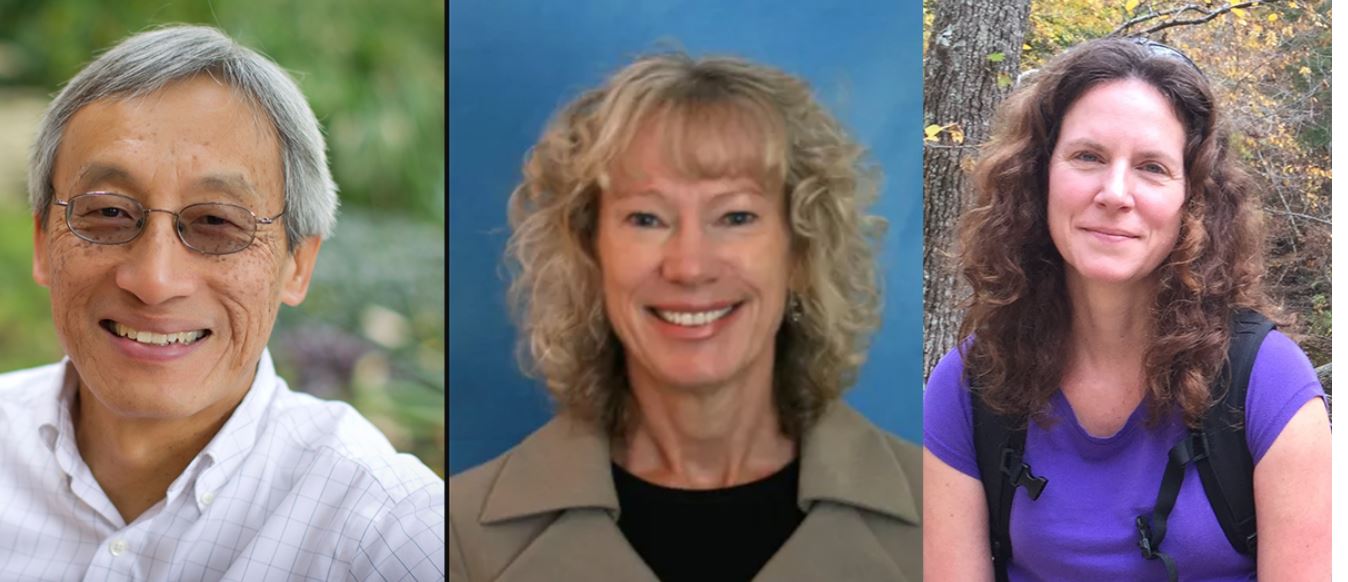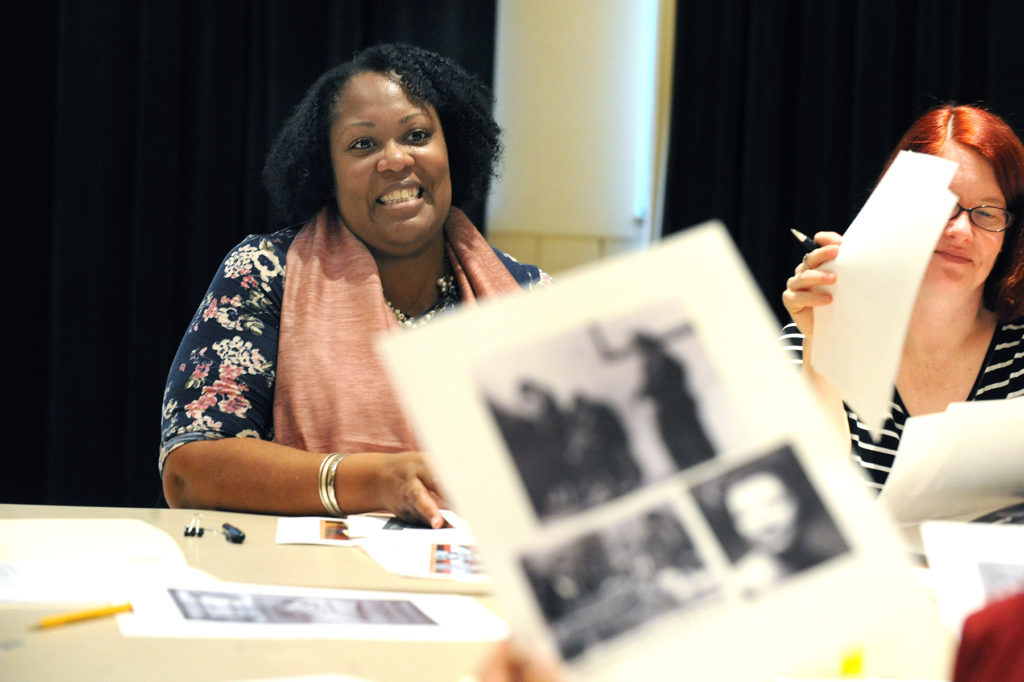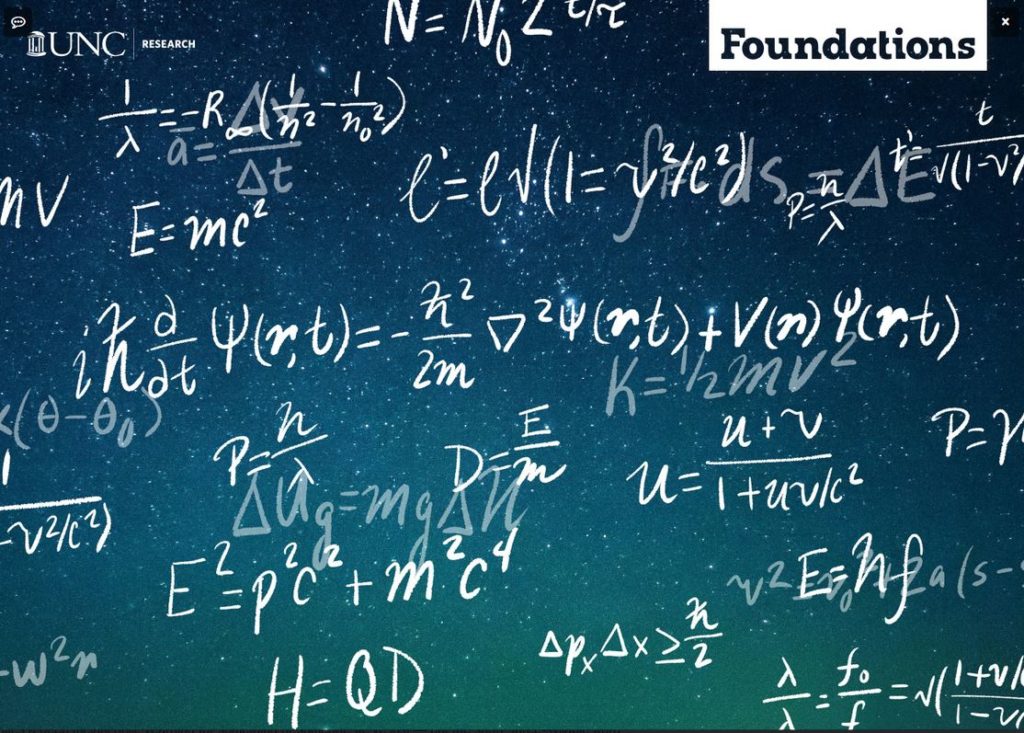Channing Der, Kathleen Mullan Harris and Karin Pfennig are among the 443 scientists selected for induction into the American Association for the Advancement of Science.

- Channing Der (Medical Services) for distinguished contributions to the field of cancer research through the discovery of RAS in cancer and the elucidation of RAS oncoprotein function and therapies;
- Kathleen Mullan Harris (Social, Economic, and Political Science) for distinguished contributions to the field of social demography, particularly for research and data generation in relation to genetic aspects of health and social behavior; and
- Karin Pfennig (Biological Sciences) for research on the role of behavior in adaptation and biodiversity, particularly on the importance of understanding the role of hybridization under changing climatic regimes.
New fellows will receive an official certificate and a gold and blue (representing science and engineering, respectively) rosette pin Feb. 15 at the AAAS Fellows Forum during the 2020 AAAS Annual Meeting in Seattle, Washington. Election as an AAAS Fellow is an honor bestowed upon AAAS members by their peers. This year’s AAAS fellows will be formally announced in the AAAS News & Notes section of the journal Science on Nov. 29.
Channing J. Der is Sarah Graham Kenan Distinguished Professor of Pharmacology at the School of Medicine and member of Lineberger Comprehensive Cancer Center. Der received his doctorate from the University of California, Irvine, and completed postdoctoral studies at Harvard Medical School/Dana-Farber Cancer Institute. His research has centered on the RAS oncogene and cancer. He has authored more than 330 publications and holds six patents. He has been supported by the National Cancer Institute, Lustgarten Foundation and Pancreatic Cancer Action Network. He has mentored more than 50 post-/30 pre-doctoral fellows, and is director of UNC Lineberger’s Integrated Training in Cancer Model Systems program. He has served on numerous scientific advisory boards, editorial boards and as a consultant for pharmaceutical/biotech companies. His honors include the NCI Outstanding Investigator Award; Hyman L. Battle Distinguished Cancer Research Award; University of California, Irvine, Distinguished Alumnus Award; and UNC Mentorship Award for Lifetime Achievement.
Kathleen Mullan Harris is the James E. Haar Distinguished Professor of Sociology in the College of Arts & Sciences and faculty fellow at the Carolina Population Center. She is an internationally recognized scholar of social inequality, specializing in the substantive areas of family, poverty and health. Harris has been at the forefront of revolutions in research design, data collection, and data dissemination within the social and behavioral sciences and has pioneered an integrative research program that merges social and biomedical sciences to advance knowledge on the development of health and social stratification trajectories across the life course. View a video about her research.
Karin Pfennig is a behavioral and evolutionary ecologist in the department of biology in the College of Arts & Sciences who blends field and laboratory work to understand the role of behavior in the origins and maintenance of biodiversity. With support from the National Science Foundation, Pfennig and her lab are studying spadefoot toads to understand how behavior enables rapid adaptation to new habitat, which can enable species to spread into new areas or cope with global change. She is also a previous recipient of a National Institutes of Health Director’s Innovator Award. Watch an NSF video about some of her research.
The tradition of AAAS Fellows began in 1874. Currently, members can be considered for the rank of Fellow if nominated by the steering groups of the association’s 24 sections, or by any three Fellows who are current AAAS members (so long as two of the three sponsors are not affiliated with the nominee’s institution), or by the AAAS chief executive officer. Fellows must have been continuous members of AAAS for four years by the end of the calendar year in which they are elected. The AAAS Fellow honor comes with an expectation that recipients maintain the highest standards of professional ethics and scientific integrity.
Each steering group reviews the nominations of individuals within its respective section and a final list is forwarded to the AAAS Council, which votes on the aggregate list. The council is the policymaking body of the association, chaired by the AAAS president and consisting of the members of the board of directors, the retiring section chairs, delegates from each electorate and each regional division and two delegates from the National Association of Academies of Science.
AAAS encourages its sections and Council to consider diversity among those nominated and selected as fellows, in keeping with the association’s commitment to diversity, equity and inclusion.



